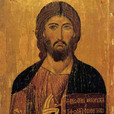
Summary: The title of this episode is simply à “Ambrose.” And once we learn a little about him, we’ll see that title is enough.For Ambrose was one of the most interesting figures in Church History, a hinge around which the course of the Faith swung.Born in 340, Ambrose was the second son of Ambrosius, the imperial governor of Gaul and part of an ancient Roman family that included the famous Marcus Aurelius. Not long after Aurelius, and his disastrous son and heir Commodus, the family became Christians who provided not a few notable martyrs. Ambrose was born at Trier, the imperial capital of Gaul. While still a child, Ambrose’s father died, and he was taken to Rome to be raised. His childhood was spent in the company of many members of the Christian clergy, men of sincere faith with a solid grasp on the theological challenges the Church of that day wrestled with; things you’re familiar with because we’ve spent the last several episodes dealing with them; that is, the Christological controversies that swirled first around Arius, then the blood-feud between Cyril & Nestorius.Now would be a good time for me to toss in some place-markers so we can get a sense of what was going on as Ambrose grew up. Donatus is the bishop of Carthage. The Cappadocian Fathers, Basil, and the 2 Gregory’s are hammering out the proper verbiage to understand the Trinity. Athanasius has his long run as THE chief defender or Biblical orthodoxy. When Ambrose was 16, the famous Desert Father Anthony of Egypt died. The Goths ran rampant over Northern Europe, causing great consternation in the Roman Empire. When Ambrose was 38 the Goths defeated the Romans at the Battle of Adrianople in a loss so thorough, the Emperor Valens was killed.During Ambrose’s lifetime, Pope Damasus will rule the Church at Rome. Jerome will move to Bethlehem and complete the Vulgate. John Chrysostom will serve as Patriarch at Constantinople.Clearly, a lot with major import was going on during Ambrose’s lifetime.When he turned 30, Ambrose, based in the capital at Milan, became governor of all NW’n Italy. He was charged with the responsibility to officiate church disputes. This was at a time when Nicaean & Arian believers were at war with each other; a war not fought with literal weapons but with words. Ambrose was no friend to the Arians, but he was so fair-minded and well-regarded, both sides supported him in his role as governor. When the Arian bishop of Milan died, Ambrose attended the meeting to elect his replacement, hoping his presence would forestall violence. To his surprise, both sides shouted their wish that he be the replacement.Ambrose didn’t want it. He was doing quite well as a political leader. Following the practice of many at that time, he hadn’t even been baptized yet. But the people wrote to Emperor Valentinian, asking for his approval of their selection. Ambrose was placed under arrest until he agreed to serve a Milan’s new bishop.Now, if the Arians had hoped to gain favor by supporting Ambrose as bishop, they were destined to disappointment. Their new bishop helped define what the word ‘orthodox’ meant. He soon took the Arians to task & refused to surrender a building for them to meet in. He wrote several works against them that went on to prove instrumental in ultimately bringing an end to Arianism.Trained in rhetoric and law, and having studied Greek, Ambrose became known for his knowledge of Greek scholars, both Christian and pagan. In addition to Philo, Origen, and Basil of Caesarea, he quoted the Neo-platonist Plotinus in his sermons. He was widely regarded as an excellent preacher.In many of his messages, Ambrose expounded upon the virtues of asceticism. He was so persuasive that noble families sometimes forbade their daughters to attend his services, fearing they’d trade their marriageable status withy its potential for a bride price, for the life of nun.One piece of his pastoral advice became a maxim for the
